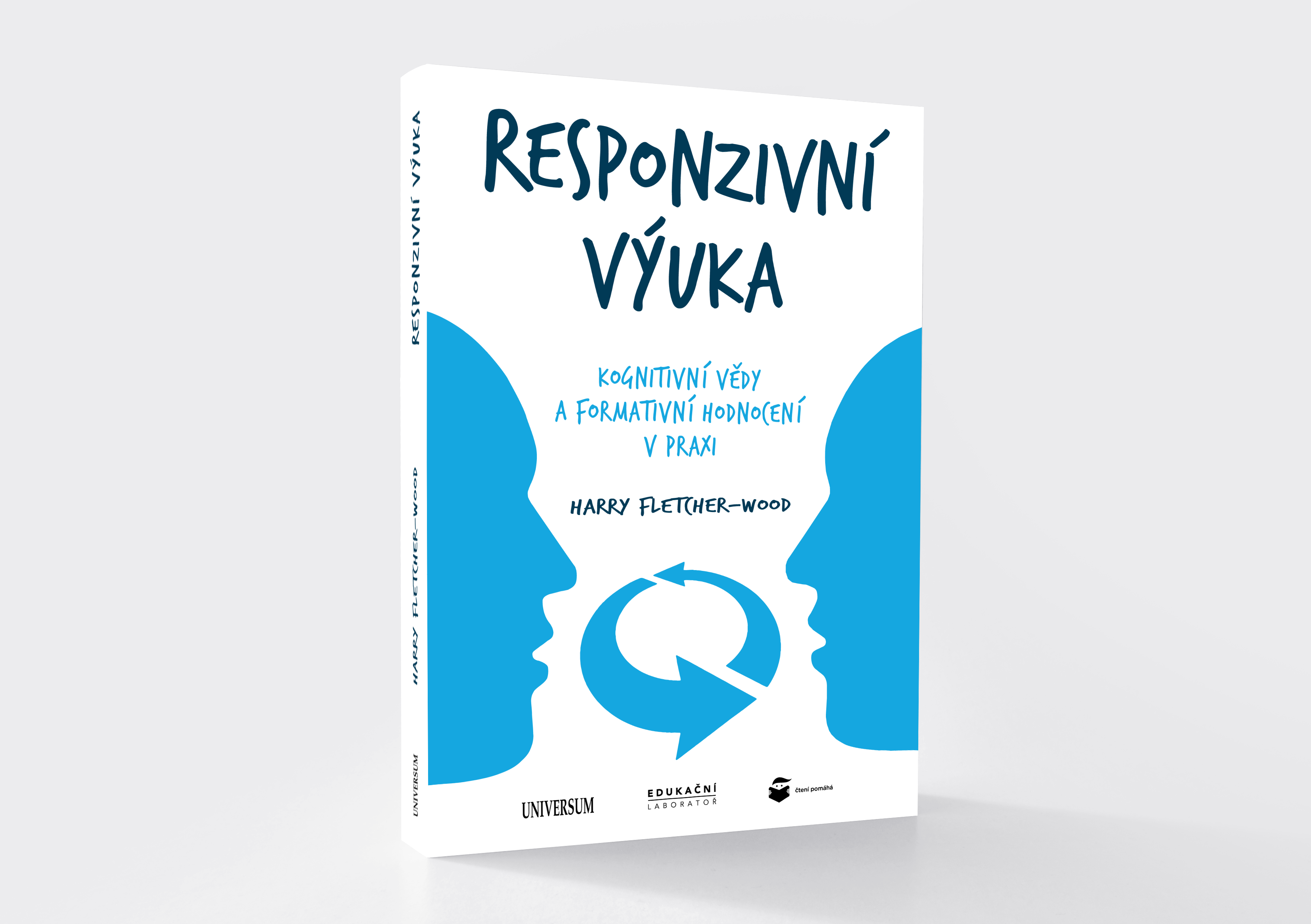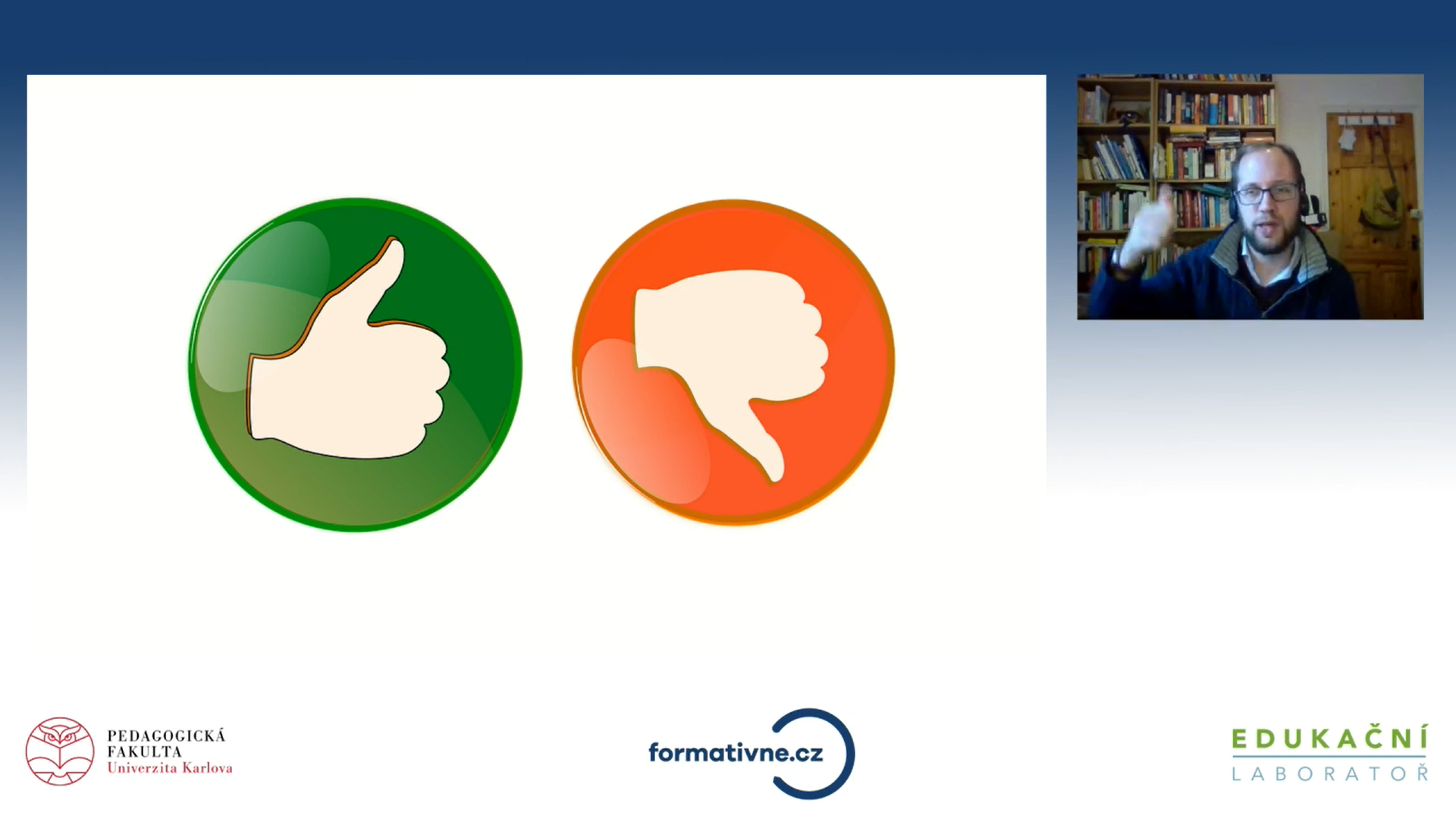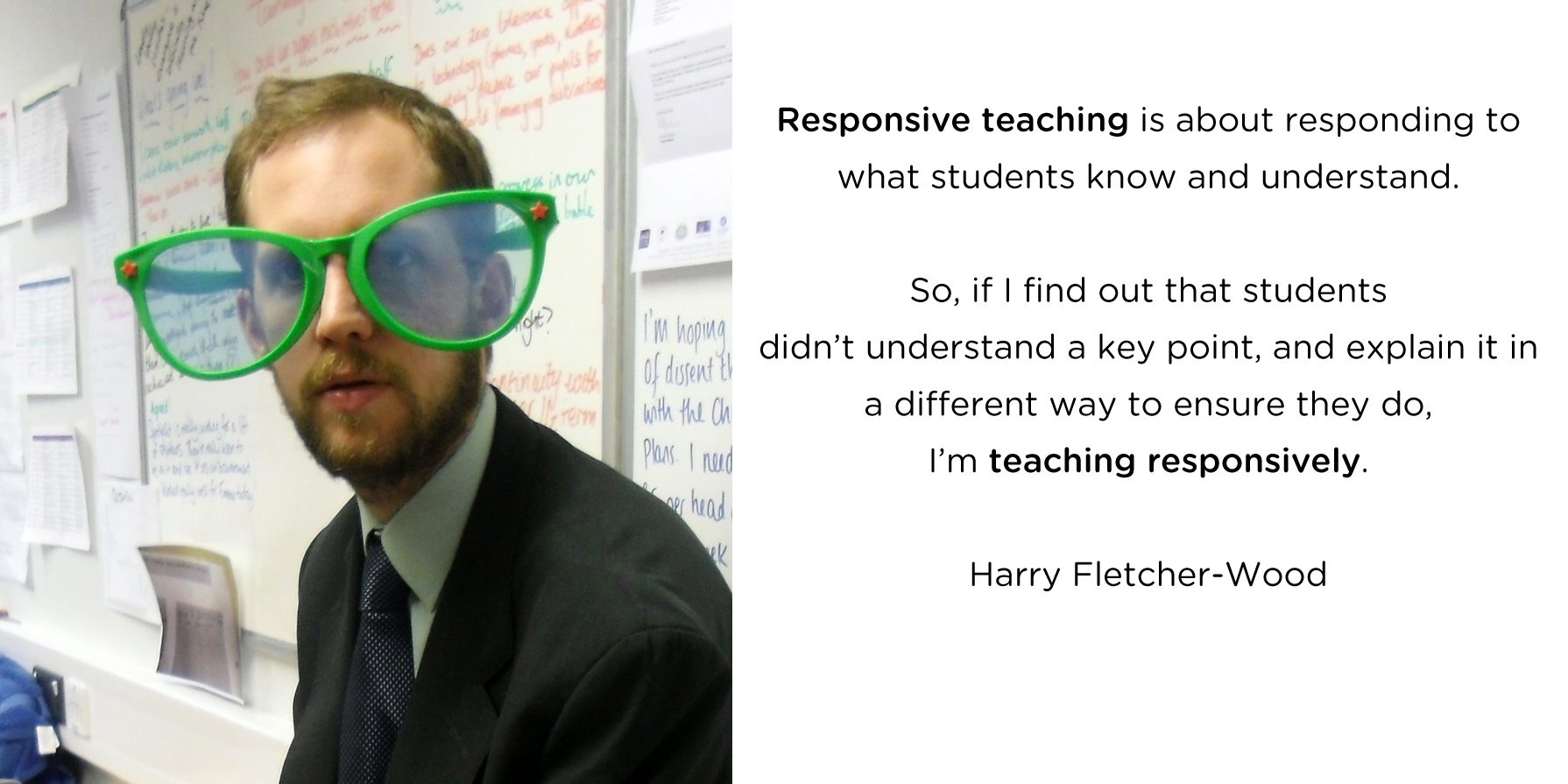There isn’t really any such thing as a skill without knowledge, says Harry Fletcher-Wood, author of Responsive Teaching
Responsive teaching was not the only topic discussed in our interview with the author of the eponymous book. Harry Fletcher-Wood spent over a decade in schools as a classroom teacher and head of professional development before taking on research roles including Associate Dean at Ambition Institute. This year, Routledge published Habits of Success, his latest book. Most recently, Harry Fletcher-Wood was the keynote speaker at the Czech conference Učíme formativne.cz.
CZ version: Těžko budou existovat kompetence bez vědomostí, říká autor Responzivní výuky Fletcher-Wood.
If you came to a Czech staffroom and asked about learning styles, many teachers would tell you they try to adapt their teaching to various learning styles of their pupils. Is this responsive teaching?
I’m not sure this is responsive teaching, for two reasons.
First, responsive teaching is about responding to what students know and understand. So, if I find out that students didn’t understand a key point, and explain it in a different way to ensure they do, I’m teaching responsively. I wouldn’t call designing activities around what students say their learning style is is responding to their actual understanding in the same way.
Second, the evidence about learning styles is very clear. Students are happy to say that they prefer to learn visually, auditorily, or whatever. But no one has provided evidence that if we teach students in the way which they say suits them, they actually learn more. We should plan around the learning goals, not the learning styles: if we are teaching geography, students must look at maps, if we are teaching languages, they must listen, if we are teaching football, they must move!
So, I would encourage teachers to respond to what students know, not what their learning style seems to be. I wrote about learning styles on my blog with links to the evidence.
The subtitle of Responsive Teaching is “cognitive science and formative assessment in practice”. While formative assessment is familiar to most teachers in Czechia, cognitive science, unlike in the UK, has not yet become an education buzzword. What is cognitive science?
Cognitive science is the study of how we learn and think. Researchers look at questions like, how much can people remember, and for how long, what makes an experience more memorable, or how often should we revisit an idea to remember it.

Does cognitive science make better teachers?
Maybe! Cognitive science tells us a lot of very useful things. It can tell us ways to present a new idea more clearly, how soon students will forget it, and how best to revisit it. But just sending teachers on a course about cognitive science doesn’t guarantee they will improve as a result. The principles cognitive science suggests have to be fitted to the practical realities of the classroom. For example, quizzes are a good way to help students learn and recall more – but we need to pick the right things to quiz, design the quizzes so students understand and can respond to them, and ensure students participate. And this means changing our habits, which is hard. Teachers need to understand cognitive science if they are to design the best possible lessons, but just providing information about cognitive science to teachers doesn’t guarantee good learning.
Has cognitive science changed how teaching looks like in an ordinary English classroom?
There are a few things I see quite often in schools. One is that we worry less about making lessons flashy and fun. We think harder about what students are thinking about, and what they will remember. This is a good thing: I was distracted by trying to make my lessons entertaining – often, students were entertained, but didn’t remember much. Another is that we use some of the cognitive science findings about forgetting to revisit ideas much more frequently, often with quizzes. This helps students a lot: it’s amazing how fast they forget things, even if we explain them well. Finally, we have thought a lot harder about what we are teaching – the curriculum – and how best to sequence ideas so that students remember them.
What is the teacher’s role in the classroom in responsive teaching? In Czechia, we keep hearing that teachers should step aside and become facilitators. Most modern schools in the country are built around this idea.
I’m not sure about this. I agree with it in some ways. Any teacher is facilitating learning – in the sense of orchestrating it, making it happen. And any time a student can do things more autonomously, I think we can and should encourage that. The problem is that this kind of autonomy is reallyhard for students when they are also learning new things. Students need guidance, models, explanation, feedback, to make sense of new and challenging learning. If the teacher sees their role as stepping aside, the risk is that they don’t give enough of that guidance and support. Success isn’t the teacher stepping aside: success is students succeeding – and the teacher then being able to step aside.
Perhaps it helps to turn this around. If the teacher isn’t adding something – if students can manage without the teacher – what are students learning, and what is the teacher contributing? I believe teachers have a lot to contribute, and we need to encourage them to do so.
In Responsive Teaching you write that when you first started teaching in late noughties, skills seemed more important than knowledge. Did you change your mind on this? Does knowledge matter, after all? In Czechia, the educational Strategie 2030+ aims at skill acquisition and proposes curriculum cuts.
Absolutely knowledge matters. There isn’t really any such thing as a skill without knowledge. For example, I’m a history teacher. One skill in history is explaining why things happen. But that skill is inseparable from knowledge, meaningless without knowledge. I have to explain why somethinghappened: the First World War, for example. So I have to know a lot about the First World War to explain what caused it. And if I do, that still doesn’t mean I can explain why the Second World War happened.
The same is true with things like critical thinking. A student can think critically in very general terms, like asking, “I wonder who paid for this research.” But really, critical thinking is domain specific. I have a degree in history, so I can think critically about how we tell stories about the past, because I’ve spent a lot of time learning about specific stories. But if you ask me to think critically about a medical research study… you’ve come to the wrong person. Skills are founded on knowledge.
In your speech at Učíme formativne.cz, you said teachers should not teach knowledge and skills simultaneously. Some of my colleagues were confused by this claim of yours. Why wouldn’t children learn how to carry out a science experiment whilst learning how to collaborate?
This idea is really seductive, and it’s something I tried a lot. But imagine this situation: you have put your students into groups to do a science experiment, and one group is dysfunctional, because two students in the group don’t get on. And a student in this dysfunctional group says to you, “Please, can you just tell me what I need to do to make this experiment work.” Should you tell the student? If you tell the student, you undermine the collaboration. If you don’t tell the student, maybe they successfully collaborate. But if they don’t the student doesn’t understand the science. When we try to do both, we set up this crazy dilemma where we almost guarantee some students fail in some way. Better to be clear what we’re doing: if you want to teach your students to collaborate, do that. That’s a worthwhile thing. But be clear that this is your priority. Don’t try to do two things at once, and fail at both.

Many teachers in Czechia who have implemented formative assessment come from a setting which is dominated by constructivist teaching, promoting inquiry, pupil autonomy, collaborative learning, learning by doing or play. Teacher-centred approaches, whole class teaching, knowledge-rich curricula or testing have a bad reputation. Can constructivist and responsive teaching coexist in a lesson?
Sure. At least as far as formative assessment goes. Formative assessment is about finding out what students have understood and adapting what you do accordingly. So you could design a question to show whether students understand a topic, and you could ask that question after a pupil-led project, or ask it after some whole-class teaching.
In fact, if you are reading this and you are sceptical about teacher-centred approaches, this is probably the best place to start. If your question shows that the pupil-led project went well — or your whole-class teaching went well — then great! If it doesn’t, then you can help students understand what they’ve missed, and maybe reconsider whether your teaching approach is working!
In your most recent book, Habits of Success, you suggest it’s the pupils’ habits that influence their success at school. What habits do you mean?
Almost everything we do is habitual. For example, consider when you last changed what you eat for breakfast, or how you go to school, or how you start a lesson, or how you mark students’ books. Maybe you just moved house, so that has changed. But most things we do, most of the day, are habitual.
The same is true of habits. Students get into patterns of behaviour: some students put their hand up whenever they have an idea. Some students say they “don’t know” whenever we ask a question. And these reactions are crucial. If we want students to get the most out of school, we need to help them form habits which will serve them well there, and in life. Habits like focusing on work, keeping going when it’s difficult, and asking for help when you get stuck. If a student does these three things, they will probably be pretty successful. If they don’t they won’t.
How can teachers change these?
In Habits of Success I talk about five steps: Specifying what we hope will change: picking a goal, i inspiring and motivating students to change, planning action: picking when and when to start, initiating change, by making it easy to start, and following up, to help students keep going. In English, this gives us SIMPLIFy change.
Should teachers shape the habits of their students? Shouldn’t we rather give them the freedom to be themselves?
If we just think about ourselves, we know that sometimes we don’t act in our best interests. We eat and drink too much, we exercise too little. And so sometimes we get others to help us: “Don’t let me forget to do this,” we say. We all need help to do what we really need to do.
The group who struggle most with this are teenagers. We know that the prefrontal cortex isn’t finished until your twenties. It’s hard to make long-term decisions when you’re focused on the immediate. It’s our job – not to change their personalities – but to help them pursue their goals.
If you go back to my example above, some students come to school with habits which are well-adapted to success: they work hard, they listen, they ask if they have a problem. Others don’t. It’s our job, as teachers, to help students do better. If we are just going to let students do whatever they would do anyway, why bother being a teacher?

You trained with Teach First, spent a decade in the classroom and then moved into research. Now you work for Teacher Tapp, an online app for teachers. Is there any reason Czech teachers should download Teacher Tapp to their phones?
There are a few cool things about Teacher Tapp. First, you get to find out what other teachers are thinking: in England, you can compare your views, or your school’s policies to 8,000 other teachers, every day. And you also get a tip, a blog post, every day, so you can stay up to date.
So if you want to know what’s going on, and what people are thinking, you should download Teacher Tapp.
We have an English group on the app, and we also have groups running locally-relevant questions in the Netherlands and in Flanders. If anyone wants to work with us to set up a Czech service, get in touch!
The interview was lead by Pavel Bobek on behalf of EDUkační LABoratoř
Pavel Bobek se stal učitelem v Anglii. V Londýně učil na oceňované veřejné škole v problematické čtvrti. Od září 2021 působí v Praze na ZŠ Solidarita. Je členem Otevřeno a Učitelské platformy a na svém blogu se věnuje zejména popularizaci výzkumu ve vzdělávání a jeho implikacím pro každodenní učitelskou praxi.